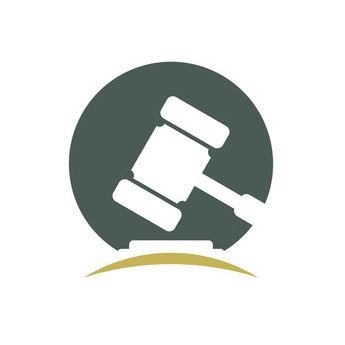Best Defamation Lawyers in Guatemala City
Share your needs with us, get contacted by law firms.
Free. Takes 2 min.
List of the best lawyers in Guatemala City, Guatemala
About Defamation Law in Guatemala City, Guatemala
Defamation law in Guatemala, including its capital city of Guatemala City, is governed by both civil and criminal codes. It describes defamation as acts that harm a person's reputation through false accusations or statements. These wrongful acts can be carried out through various means, such as writing, drawings, or other forms of representation. It's important to note that truthfulness of the statement is not an absolute defense in defamation cases in Guatemala, and the affected party can pursue both civil and criminal actions against the defamer.
Why You May Need a Lawyer
Seeking the help of a lawyer is often vital when dealing with defamation cases. It can be challenging for non-experts to understand the complexities of defamation law in Guatemala, and an experienced lawyer can help bridge this gap. In cases where one's reputation is damaged due to false and malicious statements, a lawyer can guide one through the process of filing a lawsuit and seeking compensation. A lawyer can also provide the necessary legal advice and representation when one is accused of defamation.
Local Laws Overview
Defamation laws in Guatemala City fall under the umbrella of the "Dignity and Honor" law found in Guatemala's penal code. Defamation, known as 'difamación', is narrowly defined as the action of imputing a crime to someone knowing its falsehood or recklessly disregarding the truth. 'Injuria' is another related concept, which involves offending one's dignity or decorum, irrespective of the truth. Both are considered serious offenses and are subject to legal punishment including fines and imprisonment if convicted.
Frequently Asked Questions
What constitutes defamation in Guatemala?
Defamation in Guatemala is the act of making false statements about another person which damages their reputation. This can be committed through various means, including spoken words, written communication, or other forms of representation.
What is the difference between defamation and insult in Guatemala?
Defamation involves knowingly making false statements about someone, whereas insult, or 'injuria', is insulting someone's dignity or decorum. Both are offenses under Guatemalan law, but defamation carries the added element of false accusation.
Is truth a valid defense in defamation cases in Guatemala?
Truth may not always serve as an absolute defense in a defamation case in Guatemala. This depends on the circumstances of the case and the nature of the statements made.
What are the possible penalties for defamation in Guatemala?
The penalties for defamation in Guatemala may involve fines, community service, or imprisonment, depending on the severity of the defamation and previous convictions of the defamer. Legal penalties are prescribed by the court following due process.
Can I file a defamation suit if I'm a foreigner in Guatemala?
Yes, foreigners residing in Guatemala have the right to reputation under the constitution and may seek legal redress in cases of defamation as per the law of the land.
Additional Resources
For additional support and resources, consider reaching out to the Guatemala Bar Association for referrals to lawyers specializing in defamation. Consulting the 'Public Ministry' or 'Procuraduría de los Derechos Humanos' can also provide additional information about your rights and resources available to you.
Next Steps
If you believe you are a victim of defamation or if you are accused of defamation, it is crucial to seek legal counsel immediately. Contact a local attorney who specializes in defamation cases, they can guide you through the legal process and help protect your rights. Document any evidence related to the case, including any instances of the defamation, responses, and potential witnesses. Remember, each case of defamation is unique and it is important to follow the prescribed legal steps to ensure you receive fair and just treatment under the law.
Lawzana helps you find the best lawyers and law firms in Guatemala City through a curated and pre-screened list of qualified legal professionals. Our platform offers rankings and detailed profiles of attorneys and law firms, allowing you to compare based on practice areas, including Defamation, experience, and client feedback.
Each profile includes a description of the firm's areas of practice, client reviews, team members and partners, year of establishment, spoken languages, office locations, contact information, social media presence, and any published articles or resources. Most firms on our platform speak English and are experienced in both local and international legal matters.
Get a quote from top-rated law firms in Guatemala City, Guatemala — quickly, securely, and without unnecessary hassle.
Disclaimer:
The information provided on this page is for general informational purposes only and does not constitute legal advice. While we strive to ensure the accuracy and relevance of the content, legal information may change over time, and interpretations of the law can vary. You should always consult with a qualified legal professional for advice specific to your situation.
We disclaim all liability for actions taken or not taken based on the content of this page. If you believe any information is incorrect or outdated, please contact us, and we will review and update it where appropriate.








